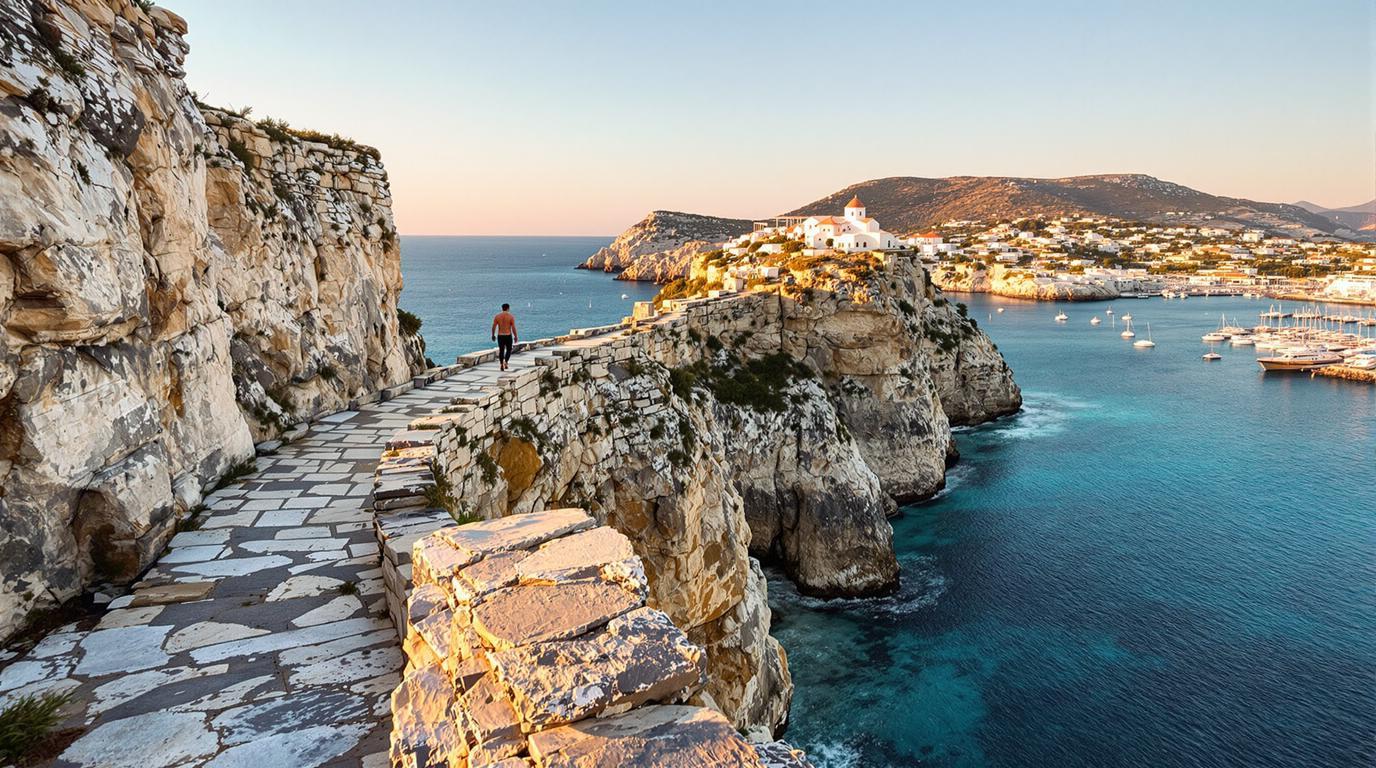Ithaca’s steep cliffs plunge into crystalline waters, dramatically framing an island smaller than Manhattan but carrying the weight of epic Greek mythology. Beyond postcard-perfect views, this 45-square-mile Ionian gem holds the extraordinary distinction of being immortalized as the homeland of legendary Odysseus – the hero whose ten-year journey home from Troy formed the backbone of Homer’s masterpiece, “The Odyssey.”
Was Homer’s Odysseus actually from here?
Scholars have debated for centuries whether modern Ithaca truly matches Homer’s descriptions. “The geography doesn’t perfectly align with Homer’s accounts,” explains Dr. Maria Konstantinou, Greek archaeology professor. “Homer described Ithaca as ‘low-lying’ and ‘westernmost,’ while today’s Ithaca is mountainous and lies east of Cephalonia.”
Recent geological theories suggest tectonic shifts may explain these discrepancies, adding another layer of mystery to your exploration. Regardless, walking these ancient paths creates an undeniable connection to one of literature’s greatest adventures.
Follow the legendary Odysseus Trail
The island’s most compelling experience lets you trace mythological footsteps while enjoying breathtaking vistas. The trail connects sites mentioned in Homer’s epic, including the evocative Cave of the Nymphs where, according to legend, Odysseus hid gifts from the Phaeacians upon his return.
“Walking these paths feels like stepping through pages of mythology,” shares Yannis Patrikis, a local guide. “The landscape hasn’t changed much since ancient times – you’re seeing what Odysseus would have seen.”
Vathy: A picturesque capital with ancient secrets
The island’s main harbor town cradles boats in its horseshoe bay, surrounded by hills dotted with traditional white-blue houses. Here, the Archaeological Museum houses artifacts from the Mycenaean era, offering tangible connections to the time of Odysseus.
Don’t miss the waterfront Odysseus statue gazing eternally toward the sea – a perfect sunset photo opportunity and reminder of the island’s literary significance.
Picture-perfect villages that time forgot
Kioni and Frikes villages remain relatively untouched by mass tourism, offering authentic Greek island experiences. Their waterfront tavernas serve fresh-caught fish alongside local specialties like sofrito (veal in wine sauce) and regional Robola wine from neighboring Kefalonia.
The monastery with heaven-touching views
Perched 600 meters above sea level, Panagia Kathariotissa Monastery rewards visitors with panoramic views across the island and surrounding azure waters. On clear days, you can spot neighboring islands and even mainland Greece, creating perspectives that feel almost as impressive as Japan’s most dazzling temple reflections.
Secret swimming spots locals won’t tell you about
While Ithaca lacks the extensive beaches of larger Greek islands, its secluded coves offer intimacy rarely found elsewhere. Marmaka Beach, accessible only by boat, features crystal waters against dramatic white cliffs – rivaling the gleaming white terraces of Turkey’s “cotton castle” for sheer beauty.
Beyond beaches: Cultural immersion opportunities
The August Odyssey Festival celebrates Homeric heritage with reenactments, traditional music, and local feasts. Participating feels like stepping into a cultural time capsule, similar to experiences in medieval French villages with ancient traditions.
“Our festival connects generations of islanders with our mythological past,” explains Sophia Karidi, festival organizer. “It’s how we keep Odysseus alive in our modern lives.”
When to visit Ithaca
May-June and September-October offer ideal conditions: warm temperatures for swimming, fewer tourists, and authentic experiences with locals. Summer brings vibrant energy but increased crowds, while winter offers peaceful solitude with limited services.
Visiting Ithaca delivers what travelers increasingly seek – connection to ancient stories within landscapes of extraordinary beauty. Like Africa’s lakes with endemic species, Ithaca’s unique cultural ecosystem exists nowhere else on earth. Here, mythology doesn’t just live in museum displays – it pulses through everyday life, making this tiny Greek island a profound journey for both body and imagination.
